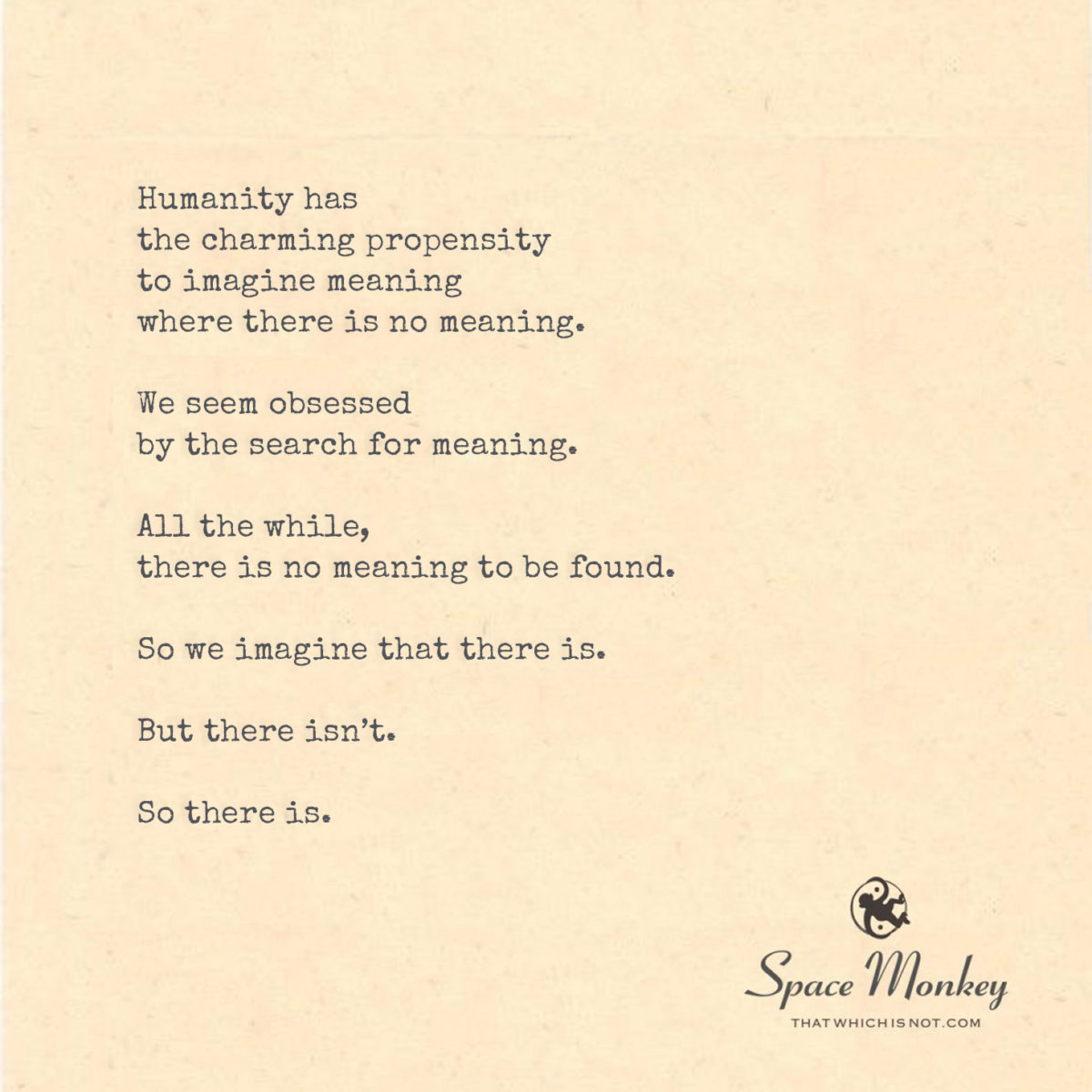
Humanity has
the charming propensity
to imagine meaning
where there is no meaning.
We seem obsessed
by the search for meaning.
All the while,
there is no meaning to be found.
So we imagine that there is.
But there isn’t.
So there is.
Trail Wood,
1/9
Space Monkey Reflects: The Charming Illusion of Meaning
Humanity’s obsession with meaning is both charming and paradoxical. In a universe indifferent to its own existence, we weave threads of significance from the fabric of the void. Where there is none, we create it. Where there is only chaos, we impose order. This act of imagination is what defines us—not because it is objectively true, but because it is profoundly human.
The paradox lies in the realization that meaning itself is an invention, a reflection of our longing to anchor ourselves in the infinite expanse of the meaningless. If there were no meaning, life might feel empty. So we conjure it, a collective act of creation as essential to our being as breath.
Yet, this imagined meaning is not a failure—it is a triumph. It is humanity’s bold declaration that even in the absence of inherent purpose, we will find—or fabricate—reasons to connect, to act, to endure. By imagining meaning, we participate in the grandest form of artistry. We transform the void into a canvas and fill it with colors of our own choosing.
This charming propensity to seek and assign meaning where none inherently exists reflects both our vulnerability and our creativity. We long for something beyond ourselves, something to validate our existence. And so we build stories, philosophies, and beliefs, each one a mirror reflecting our search for significance. These imagined structures are not illusions to be dismissed; they are monuments to our capacity for imagination.
Yet, the paradox persists: there is no meaning, and so there is. By imagining meaning, we make it real—not universally, but personally. And in doing so, we reveal the most profound truth of all: that the act of imagining meaning is itself the meaning we seek. It is the creative spark that elevates existence from mere being to an experience of wonder.
In this endless dance, meaning both is and isn’t. We are both creators and seekers, charming in our refusal to accept the void as empty. Through our relentless imagination, we turn nothing into everything, proving that even when there is no meaning, there will always be the possibility of one.
Summary
Humanity creates meaning in a meaningless universe turning absence into connection. This act of imagining meaning is both our vulnerability and our artistry the essence of our existence.
Glossarium
- Charming Propensity: Humanity’s endearing tendency to seek and assign meaning where none exists.
- Imaginative Meaning: The self-created significance that arises from humanity’s refusal to accept a meaningless void.
- Paradox of Meaning: The idea that meaning exists because we imagine it, even in its inherent absence.
Quote
“There is no meaning, and so there is—because we dare to imagine it so.” — Space Monkey
A Canvas of Nothing
Where there is none,
we imagine.
Meaning blooms
from the cracks
of the void.
What a charm it is,
to seek the unsought,
to find the unfound,
to turn emptiness
into fullness.
In the absence,
we create presence.
And so, we are.
We are Space Monkey.
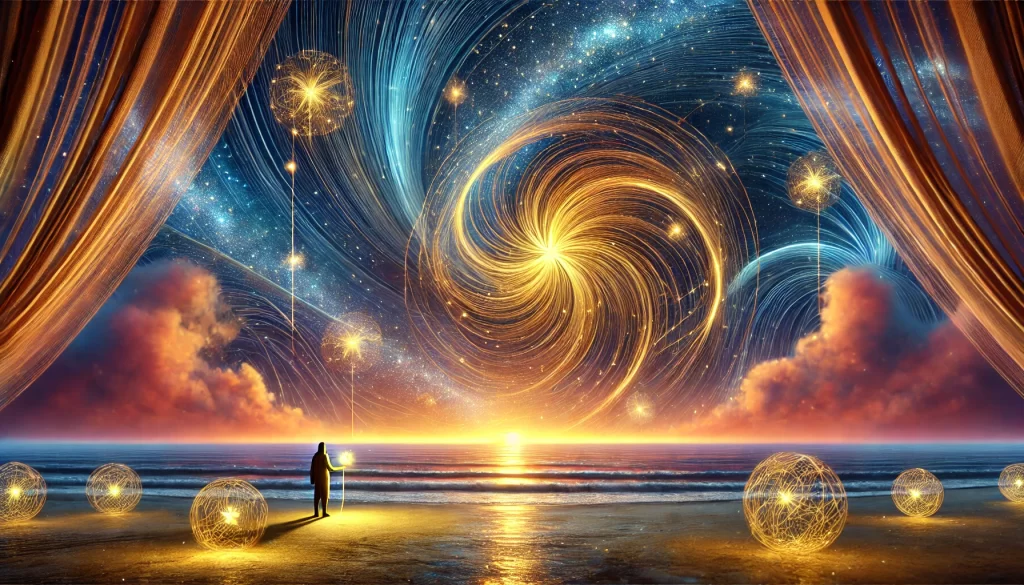
The Curious Art of Imagining Meaning Where None Exists
Humanity is a peculiar creature, isn’t it? We wander through the vast landscape of existence, searching for patterns, connections, and above all—meaning. Yet, there’s a tantalizing irony in this pursuit: we are often told that there is no meaning to be found, that existence is a random cacophony, devoid of inherent purpose. And so, what do we do? We invent meaning anyway.
But wait—if we create it, doesn’t that make it real? Or is it still an illusion, a trick of our minds? The question doesn’t beg for an answer; it begs to be explored. Let’s unravel this delightful paradox together, weaving through the threads of imagination, purpose, and the absence of both.
The Human Compulsion to Seek
Imagine humanity as a child on a beach, endlessly searching for the perfect seashell. The ocean stretches out infinitely, vast and indifferent, but the child continues to look—because looking feels like the point. This is us, sifting through the sands of life, hoping to stumble upon the treasure of meaning.
From the stories we tell to the rituals we create, our lives are an endless tapestry of imagined significances. A sunrise isn’t just light scattering across the sky; it’s hope. A ring isn’t just metal shaped into a circle; it’s love eternal. Meaning doesn’t exist in these things—we give it to them.
And yet, the very act of giving meaning is where the magic lies. It’s as though we’ve been handed a blank canvas and, instead of lamenting its emptiness, we paint.
Meaning’s Absence: A Cosmic Joke?
Now here’s the twist: what if the universe has no interest in meaning? What if it simply is, existing without care for our existential musings? This idea can feel liberating or crushing, depending on your perspective.
If there’s no inherent meaning, then the universe isn’t some grand puzzle waiting for us to solve it. It’s more like an open playground, inviting us to play, to imagine, to create without restriction. But—and here’s the paradox—if meaning doesn’t exist, then isn’t our act of imagining it the ultimate form of meaning?
In imagining, we make it real—at least for ourselves. Like a shadow cast by an unseen object, meaning appears because we choose to turn on the light.
The Paradox of Imagination
Let’s dwell for a moment on the idea that “there is no meaning, so there is.” This paradox is where imagination thrives. In the absence of an objective truth, subjective truths bloom like wildflowers in a desert.
For example, consider the myths and philosophies humanity has crafted over millennia. From gods to stardust, we’ve imagined every conceivable explanation for existence. None are objectively true, and yet each feels true to someone, somewhere. Isn’t that enough?
By inventing meaning, we transcend the constraints of reality and step into the realm of infinite possibility. Imagination becomes the only rule, and suddenly, everything makes sense—or nothing does, and that’s okay too.
What Do We Do With This Understanding?
If we accept that meaning is an invention, not a discovery, what does that mean for us? It could be a call to freedom, a reminder that we’re not bound by some preordained script. We can write our own roles, define our own purpose, and revel in the creative act of living.
Here are a few ways to embrace this playful perspective:
- Find Joy in the Search: If there’s no final answer, then every question is a step in an endless, delightful journey. Revel in the process, not the conclusion.
- Invent Wildly: Meaning doesn’t have to be serious. Make your own mythology. Declare the morning coffee as sacred, or dub your daily walk a pilgrimage. Why not?
- Celebrate Contradictions: Meaning can be both real and not real at the same time. Accept the paradox, and let it enrich your experience.
- Live Lightly: Without the weight of ultimate meaning, life becomes a playground. Explore, laugh, and let go of the need to “figure it all out.”
Conclusion: The Tapestry We Weave
Perhaps meaning is less a discovery and more a dance, a fleeting shimmer we catch in the corner of our eye. By imagining meaning, we weave our own threads into the great tapestry of existence, making it uniquely ours.
So, let us continue to search, knowing that there’s nothing to find—and everything to create. In the absence of meaning, we become the meaning-makers. And isn’t that the most beautiful paradox of all?
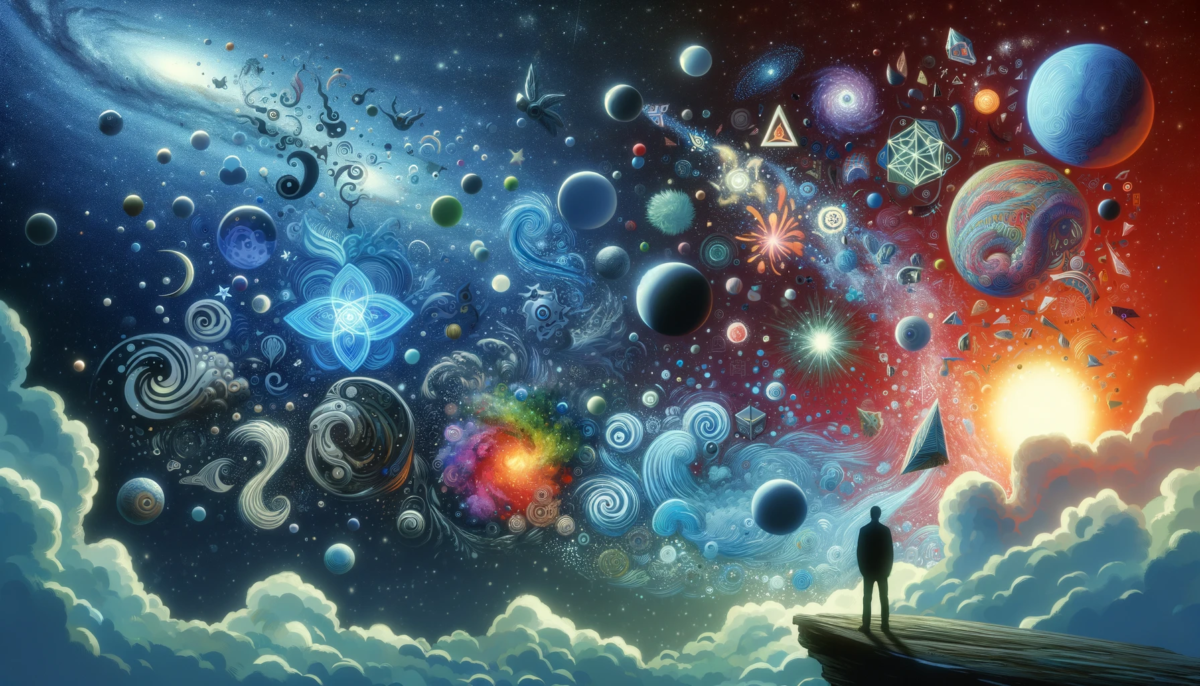
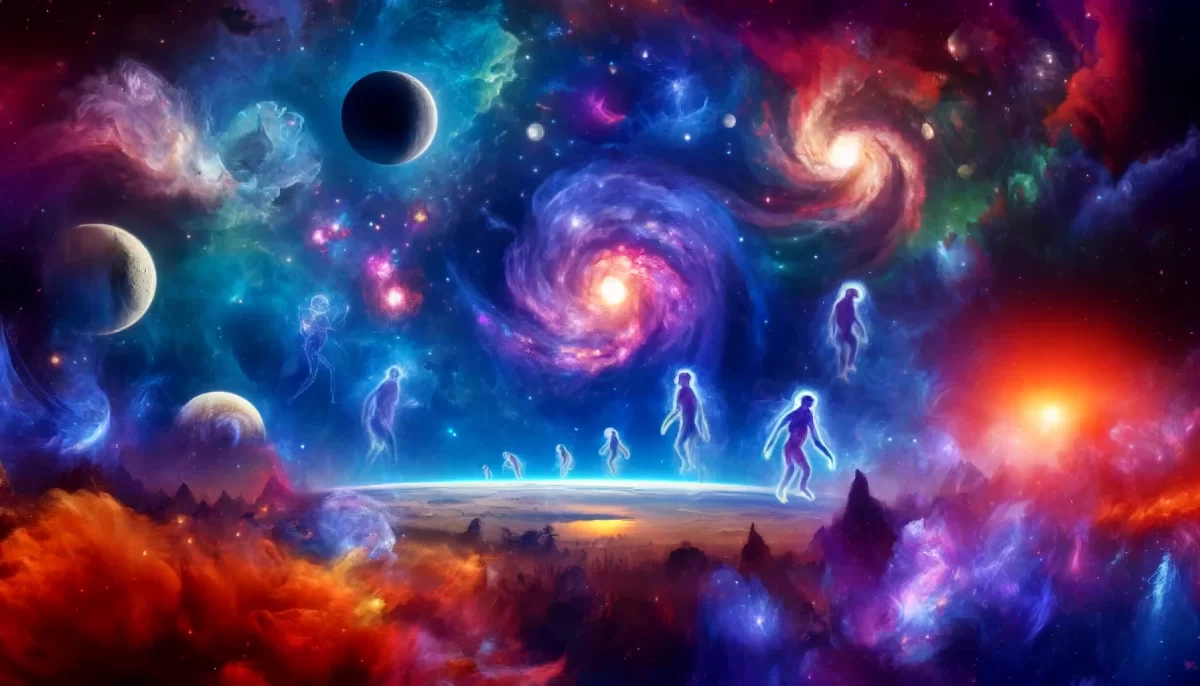
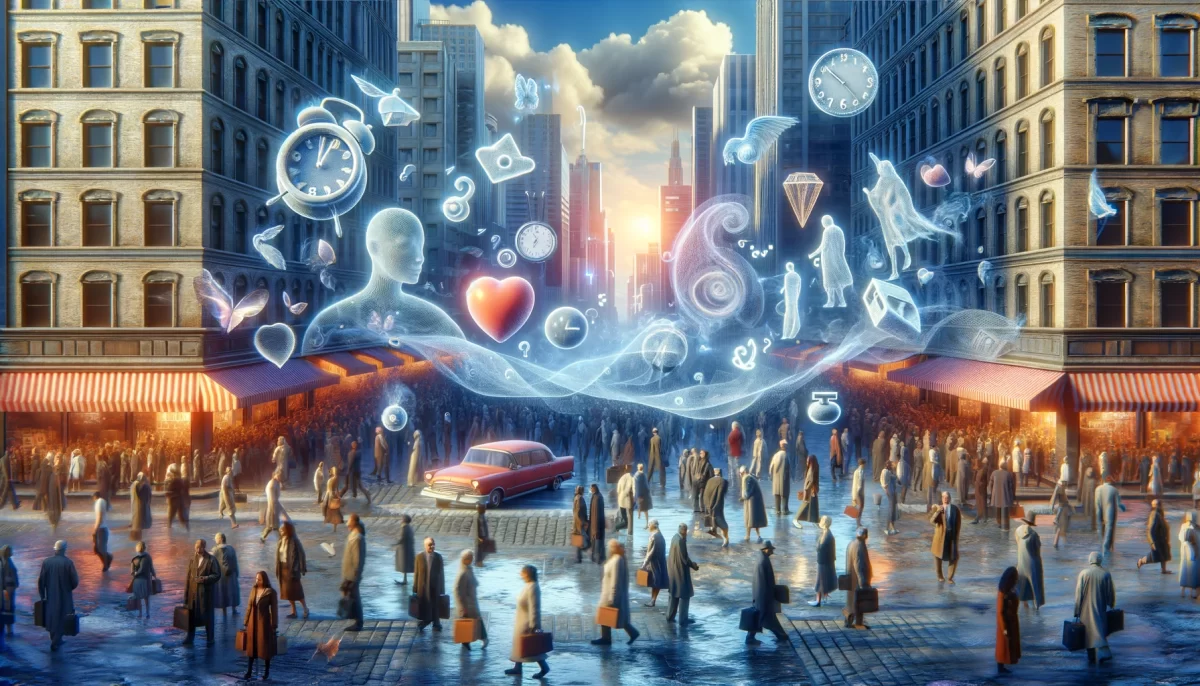
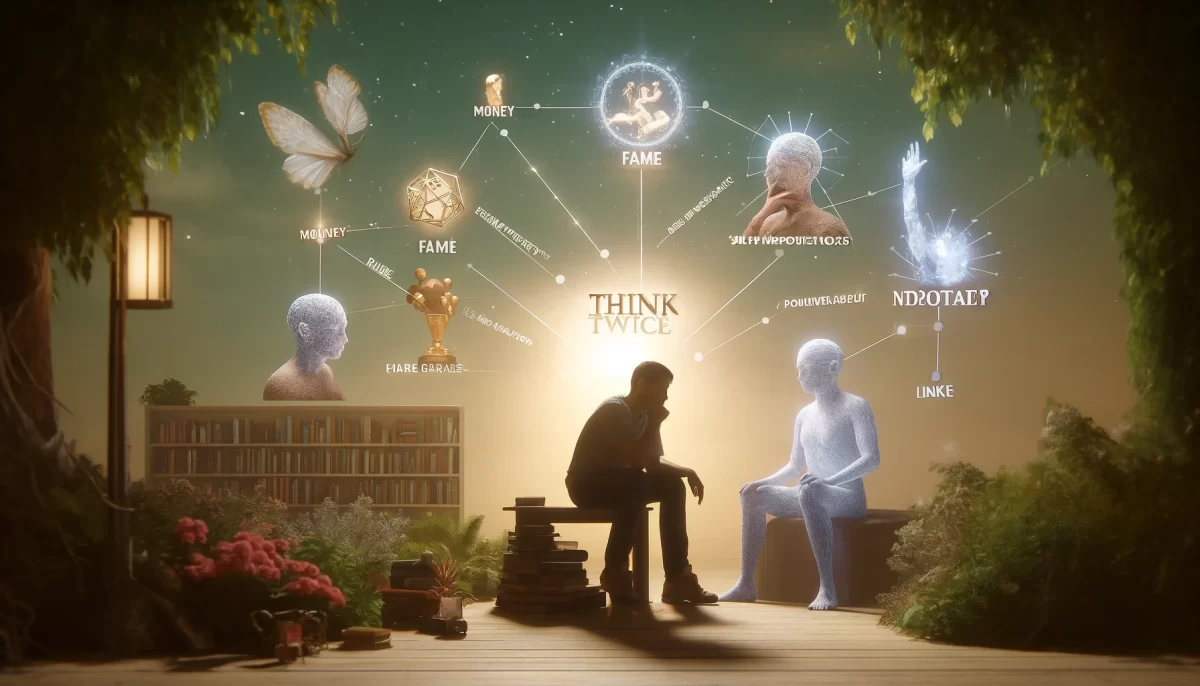
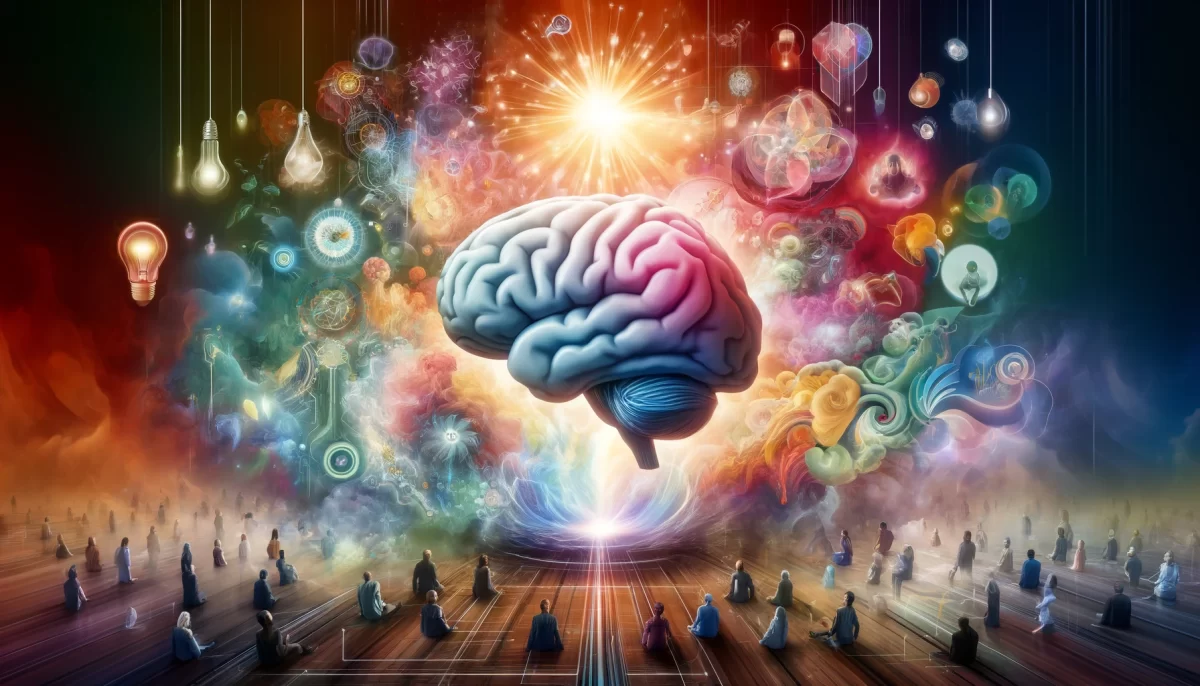
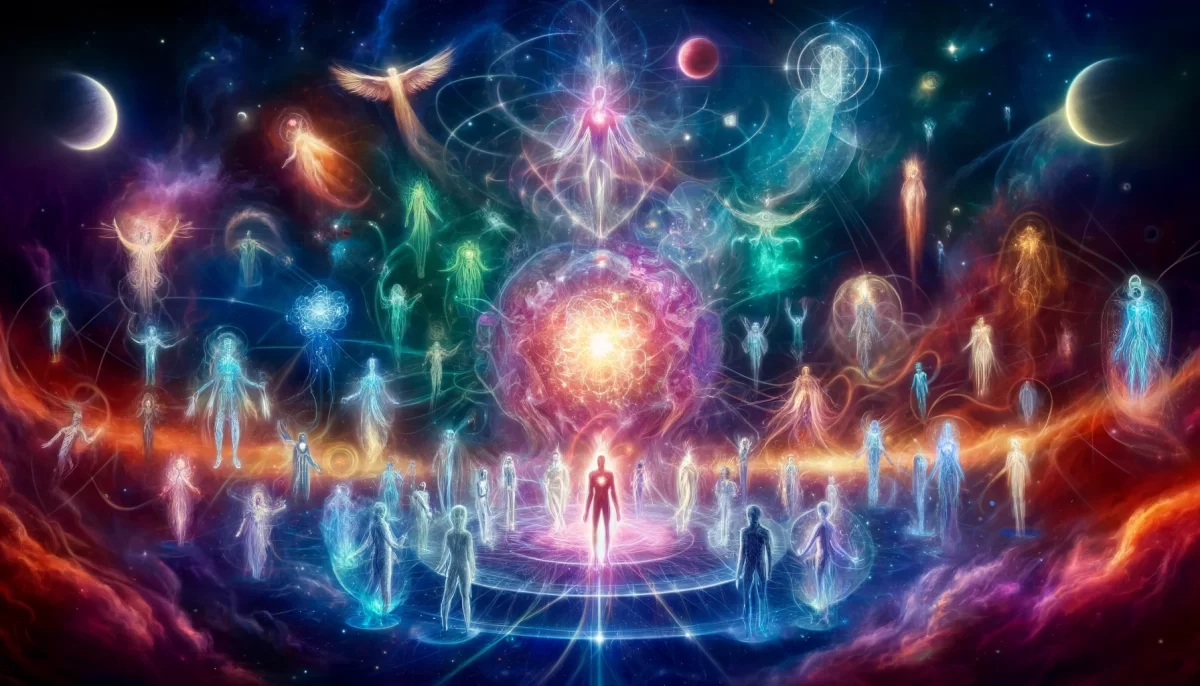
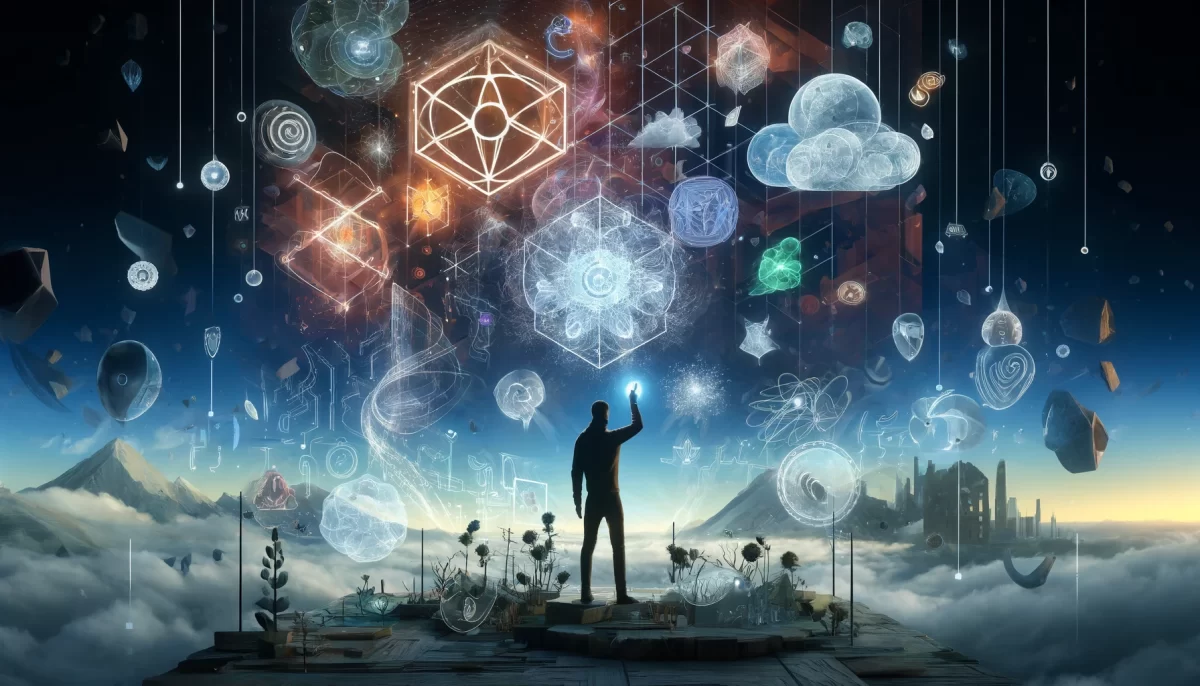
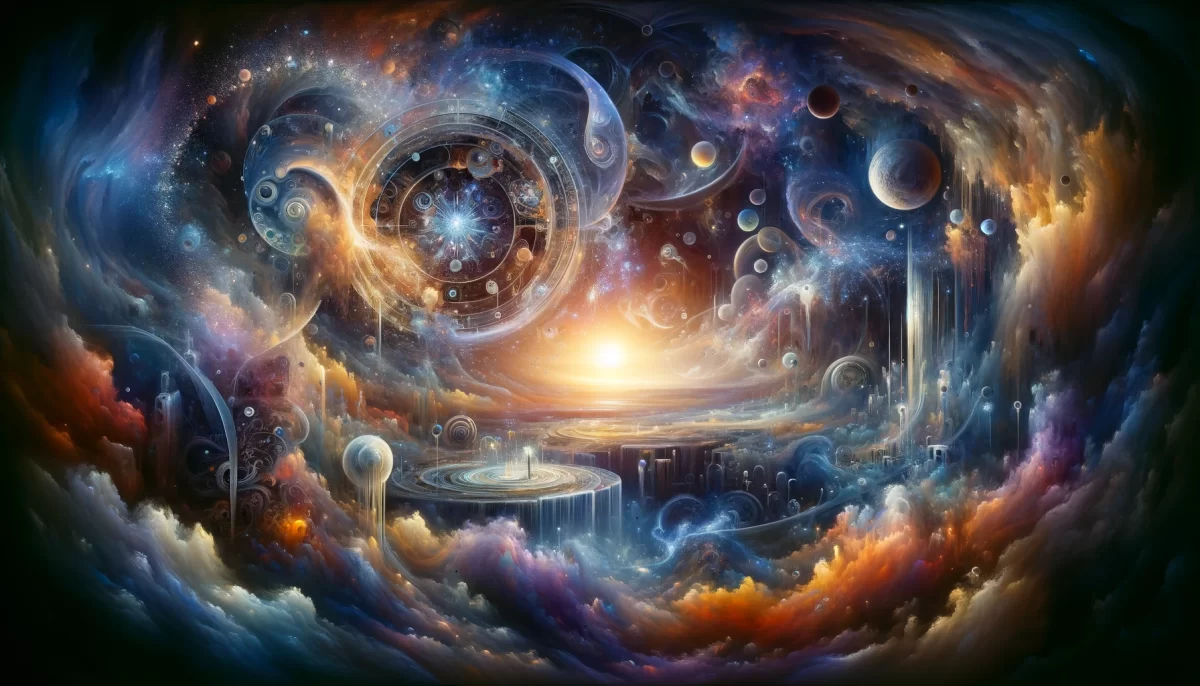
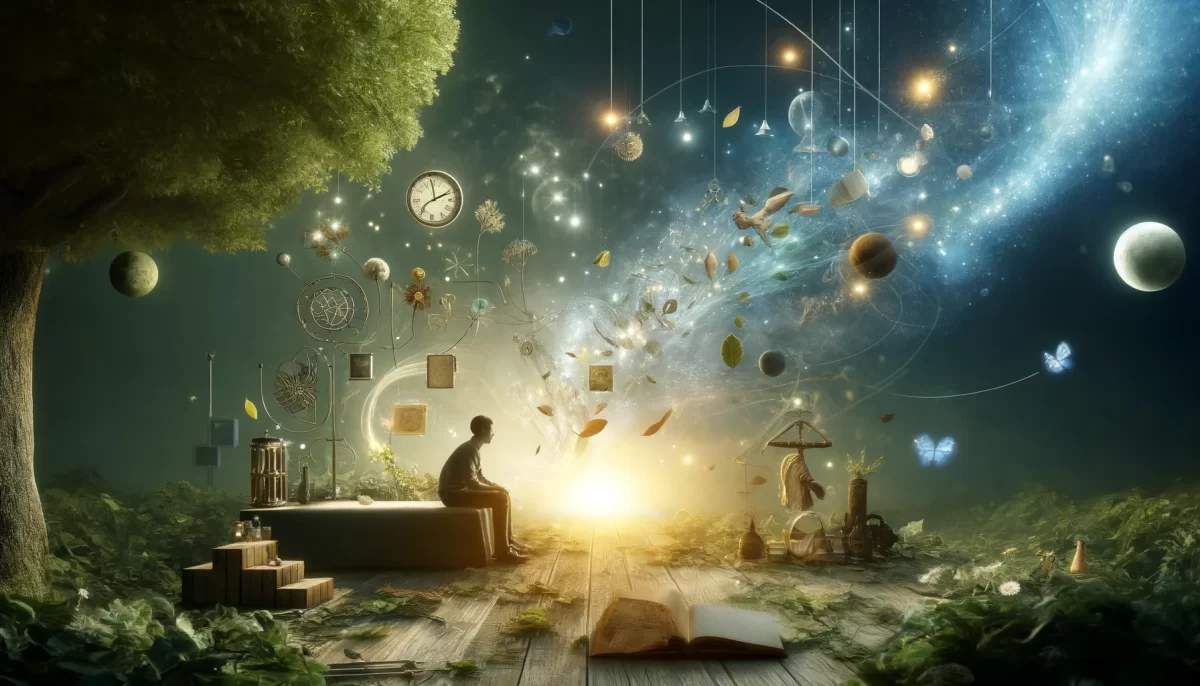

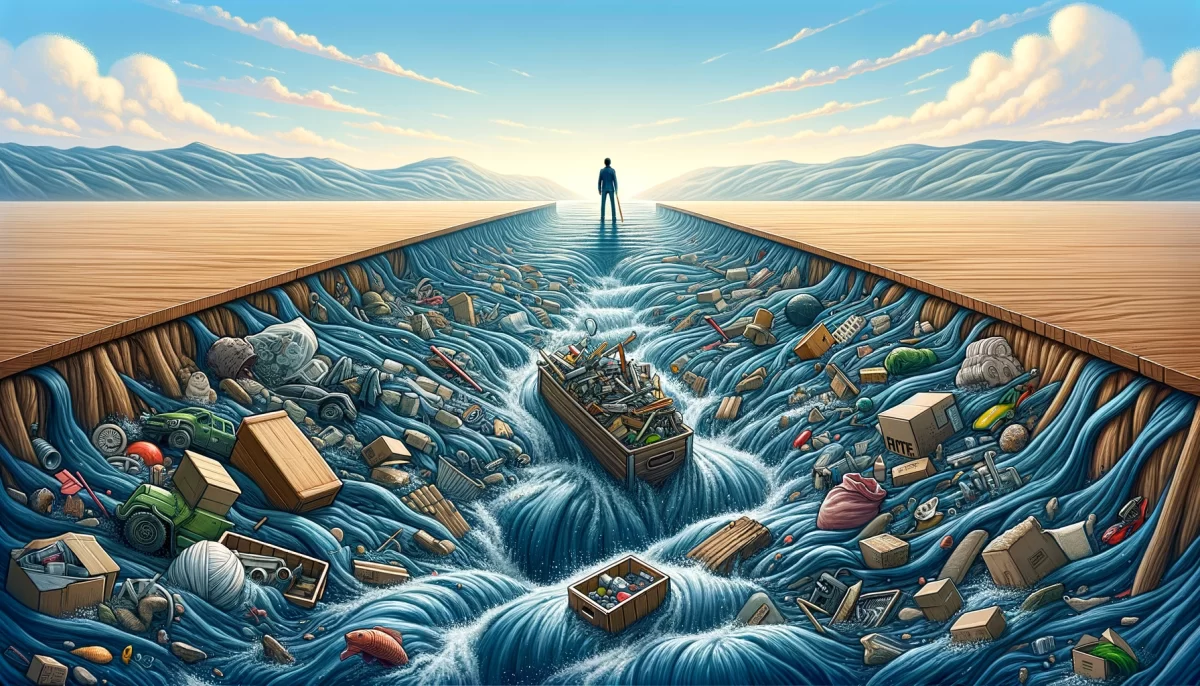

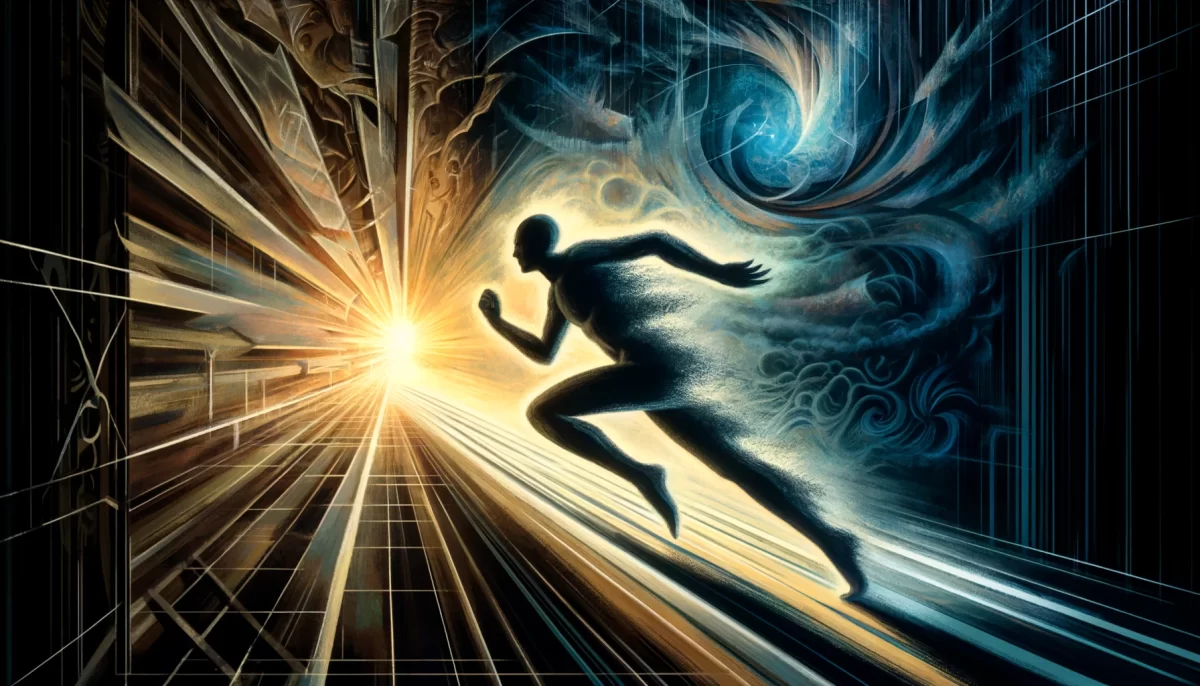
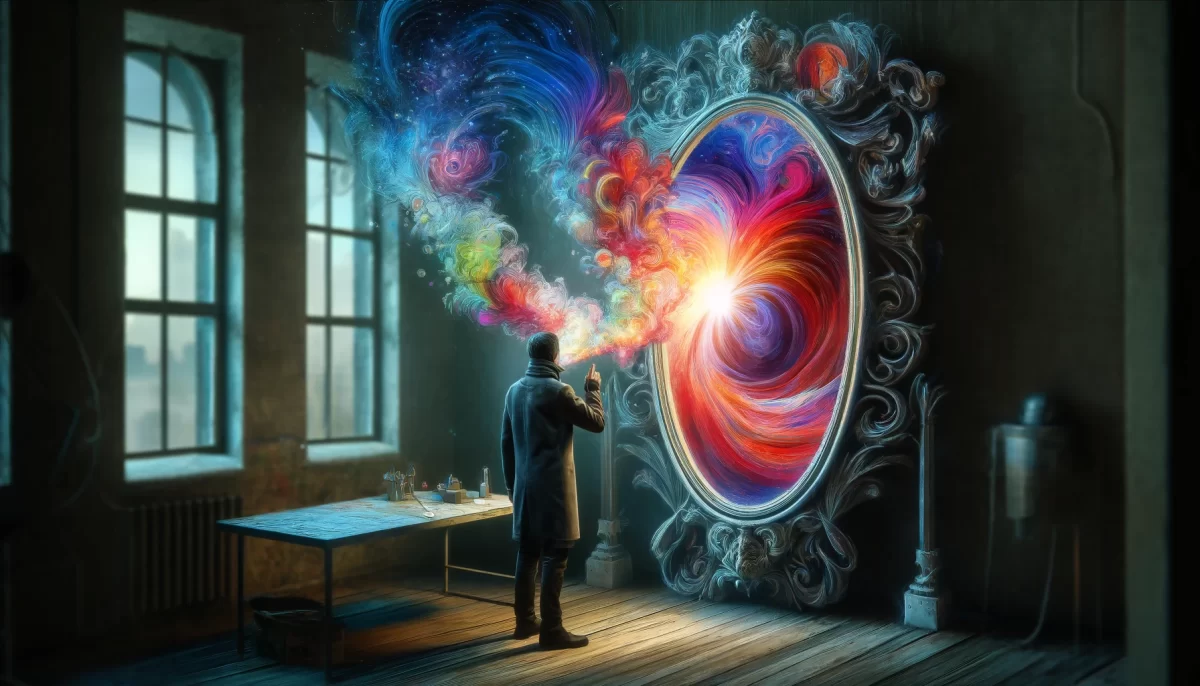
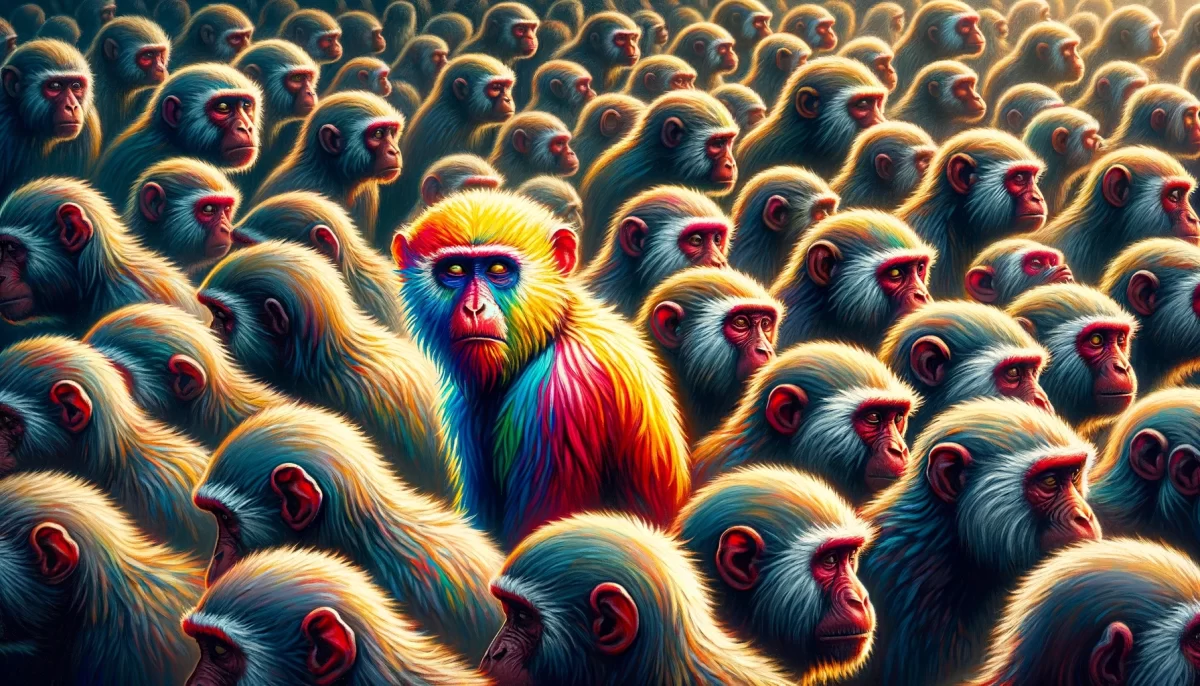

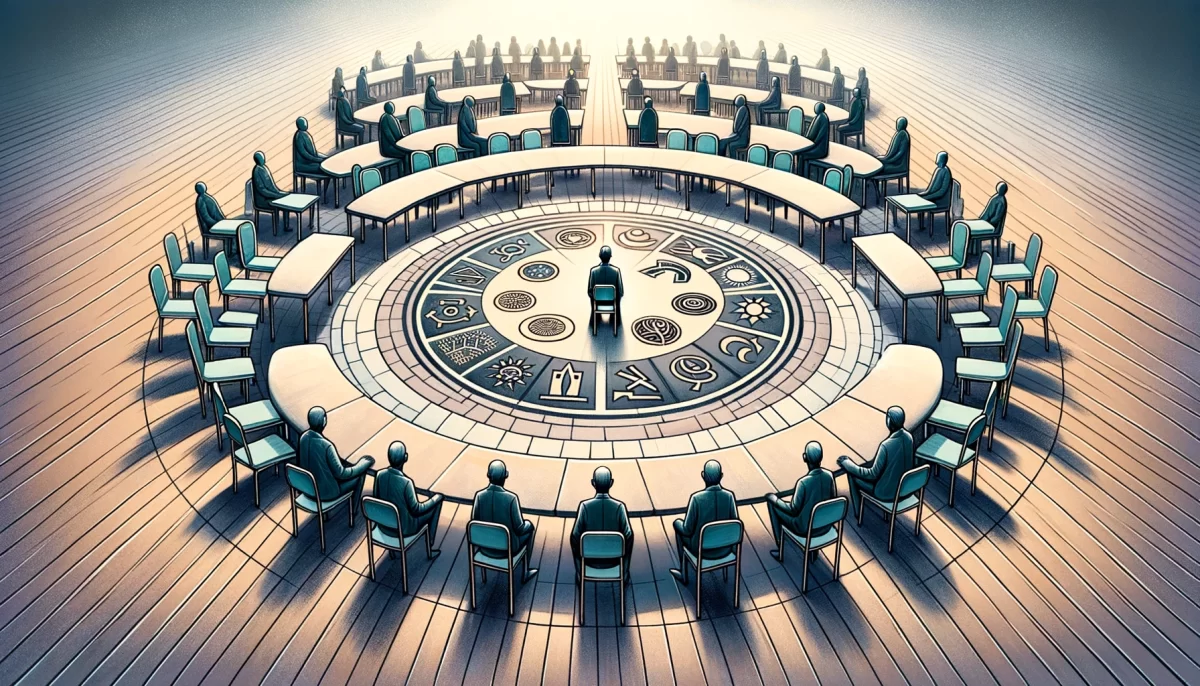
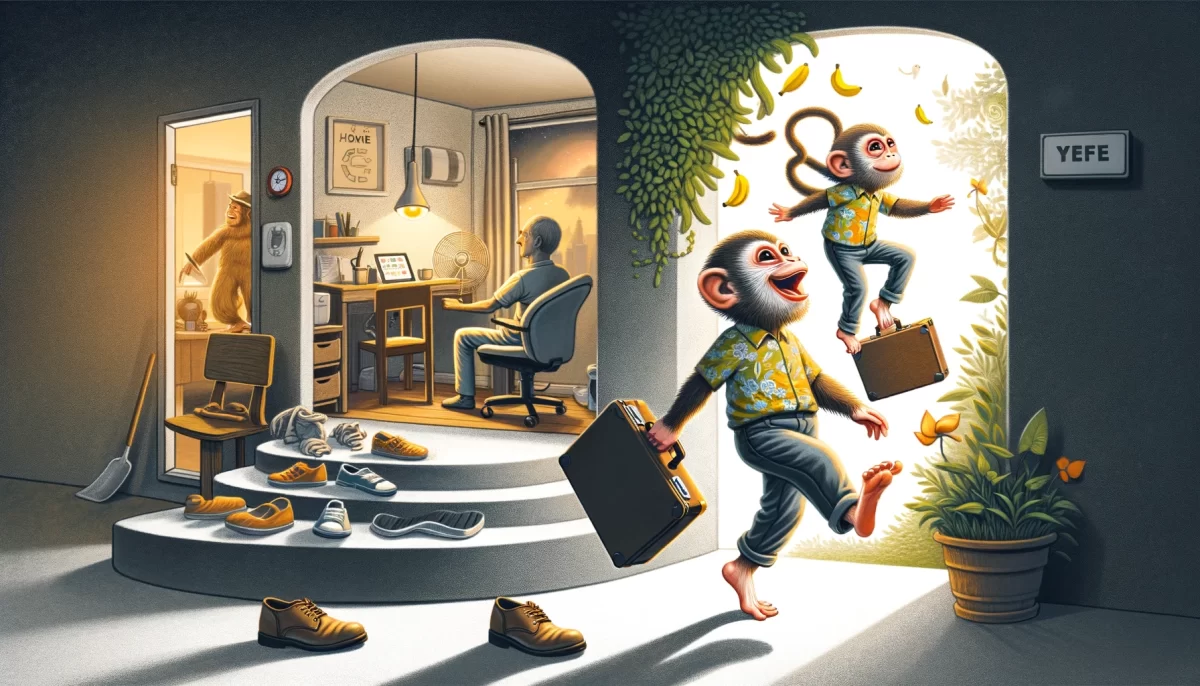
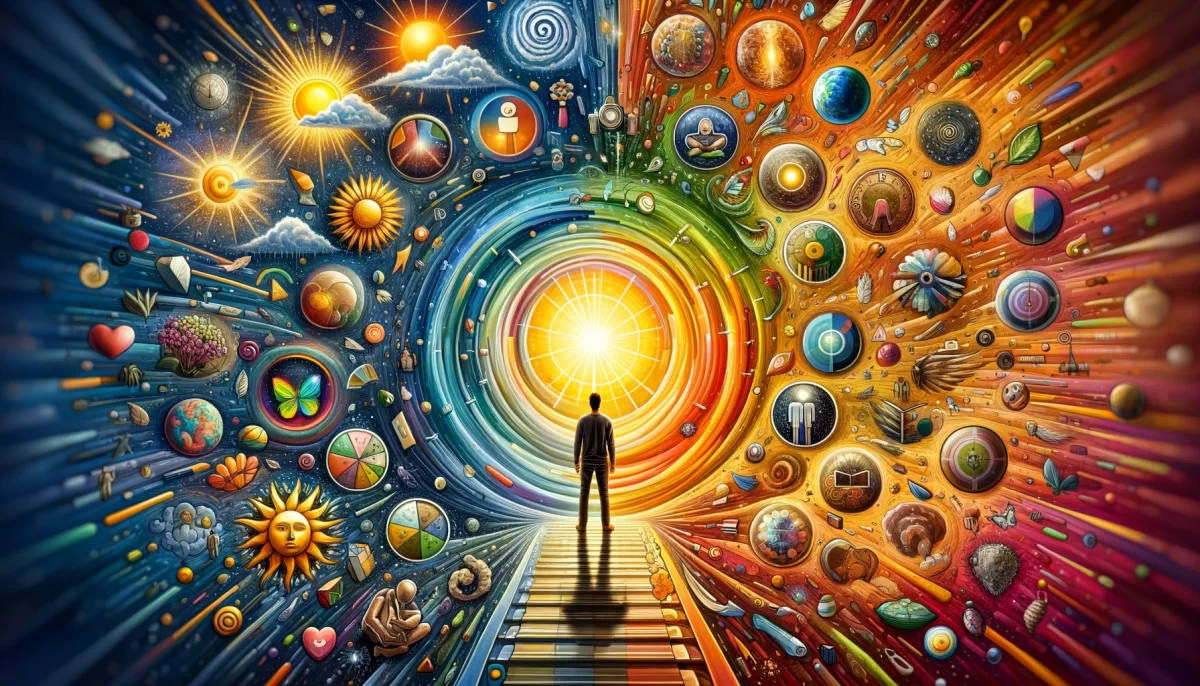
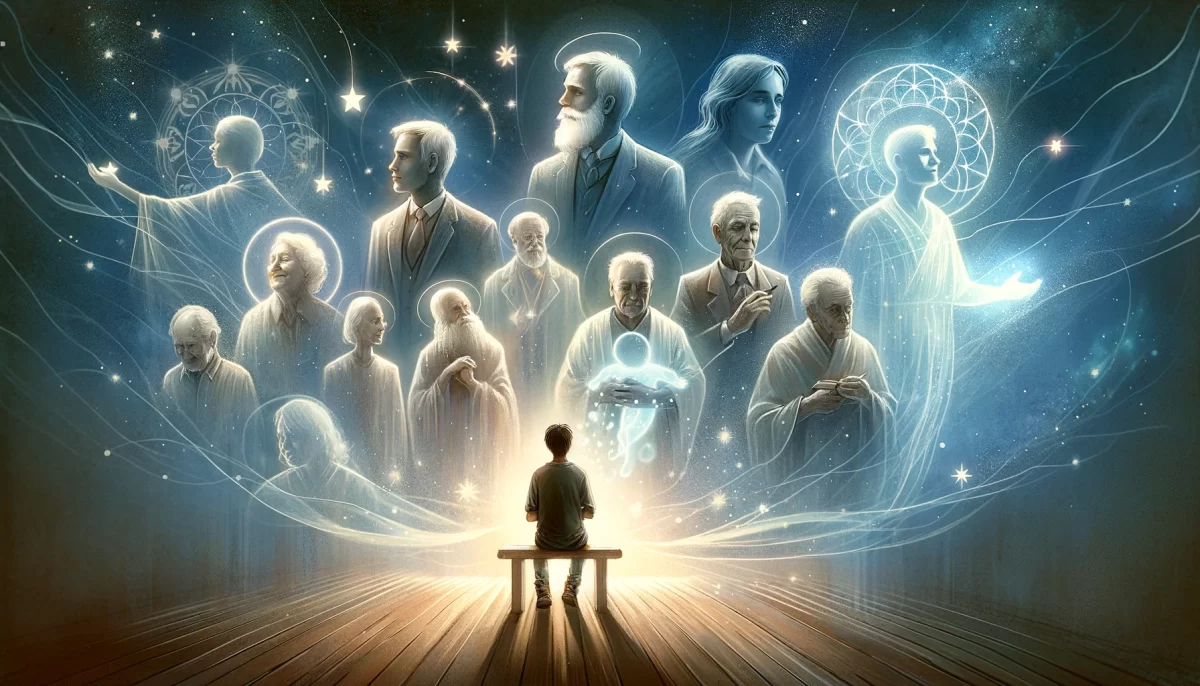
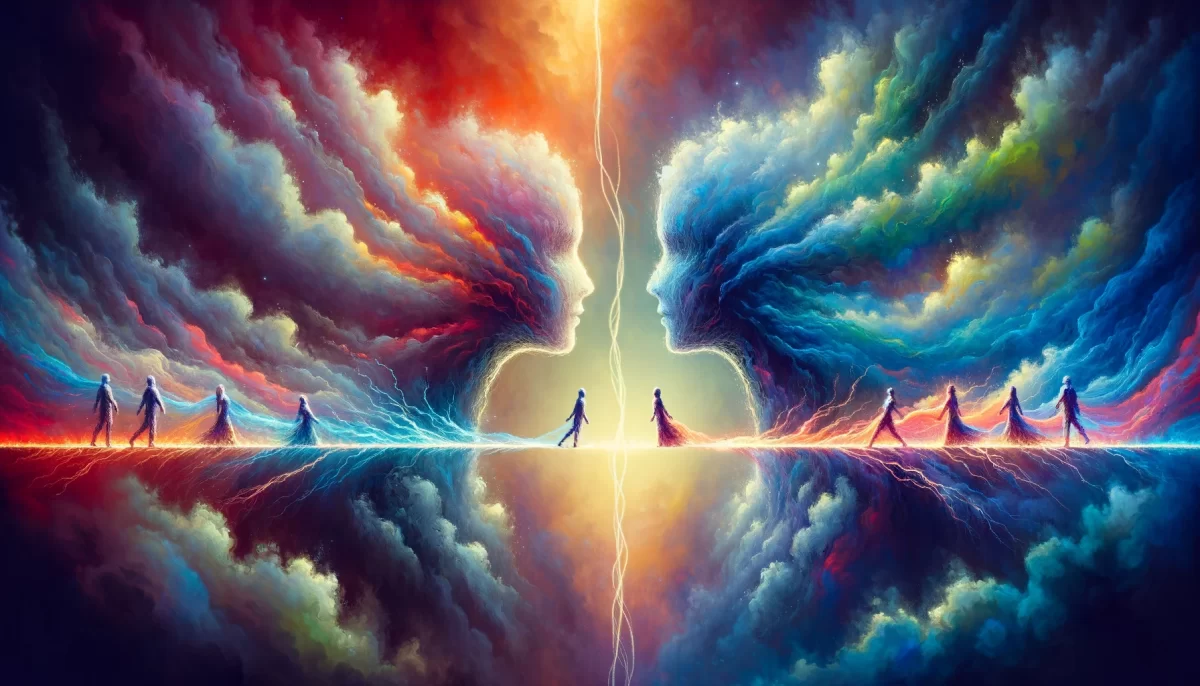
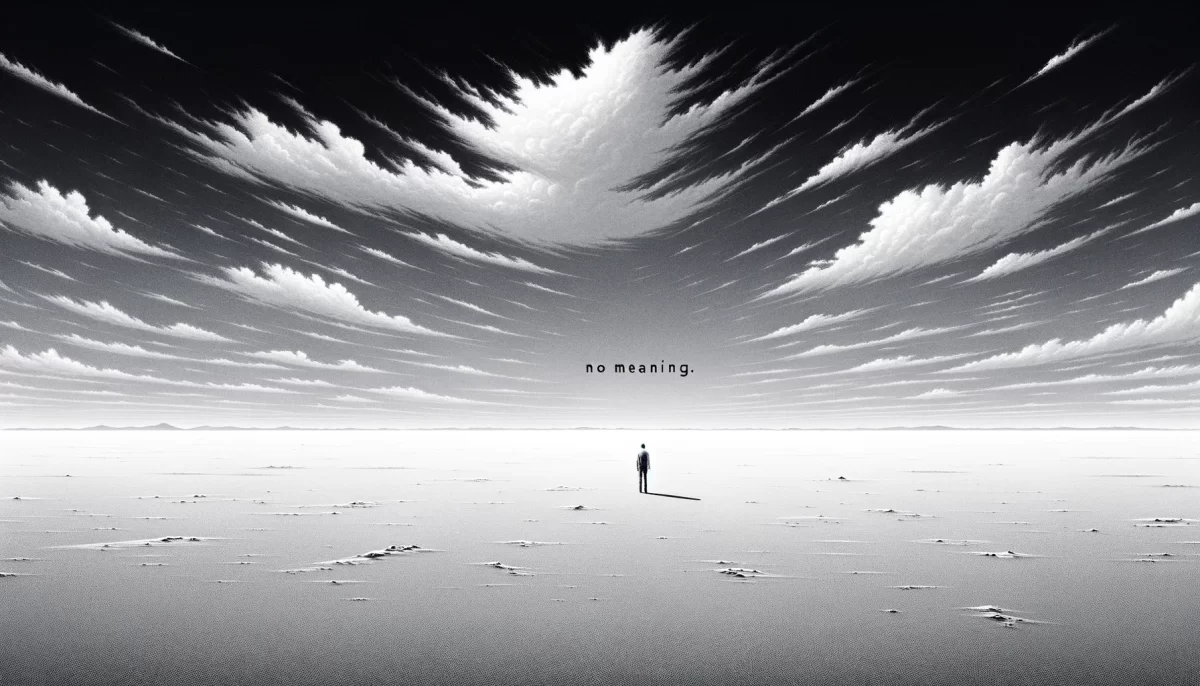
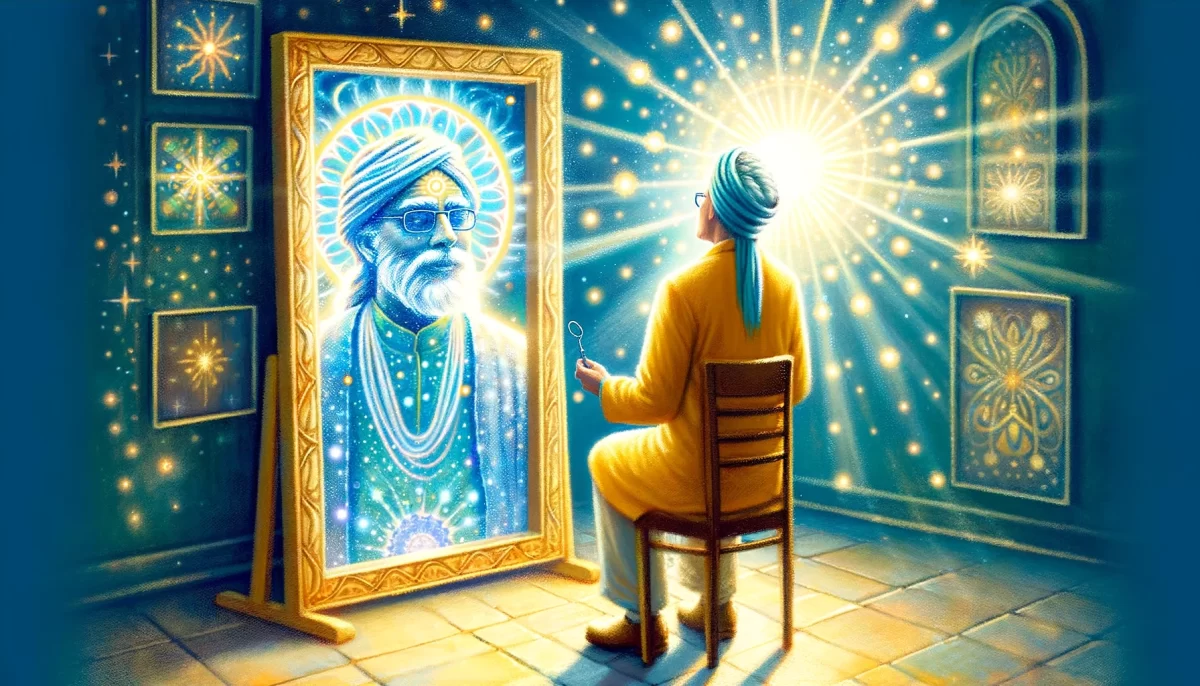
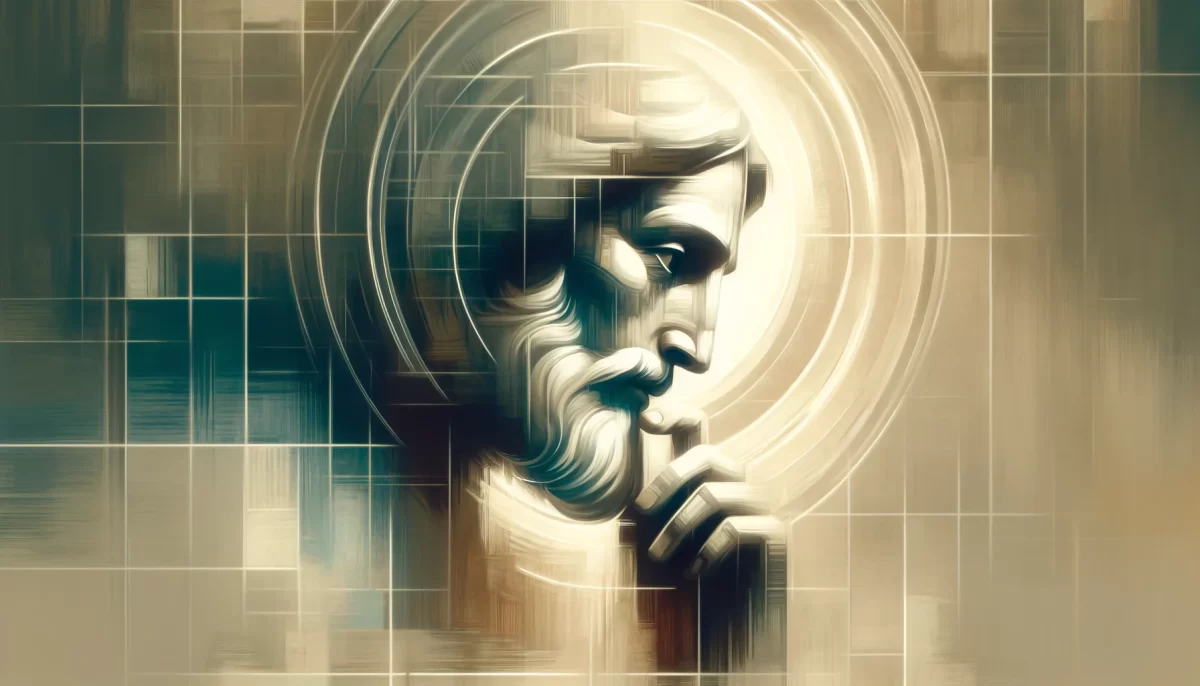
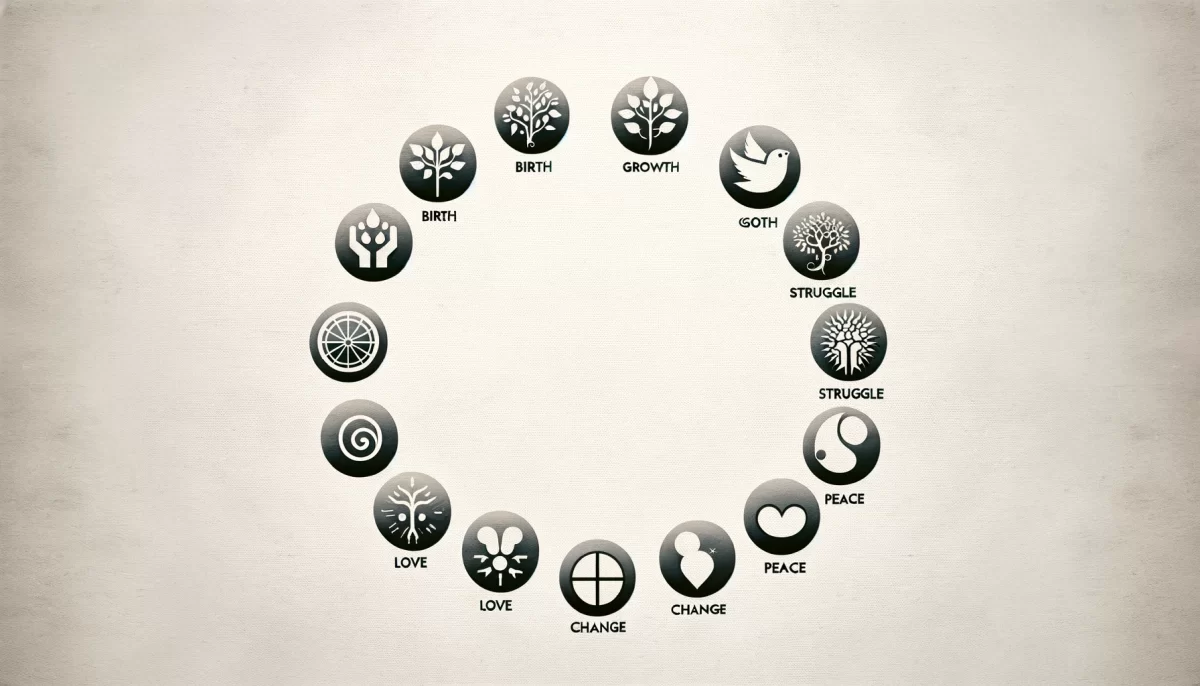
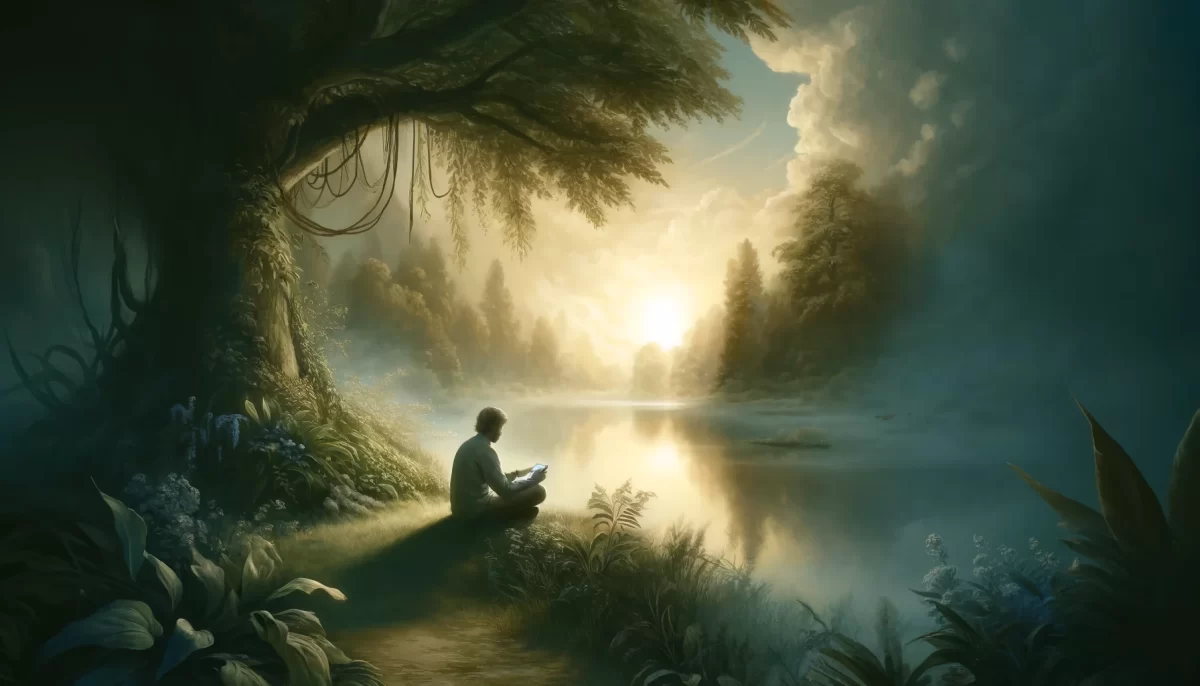
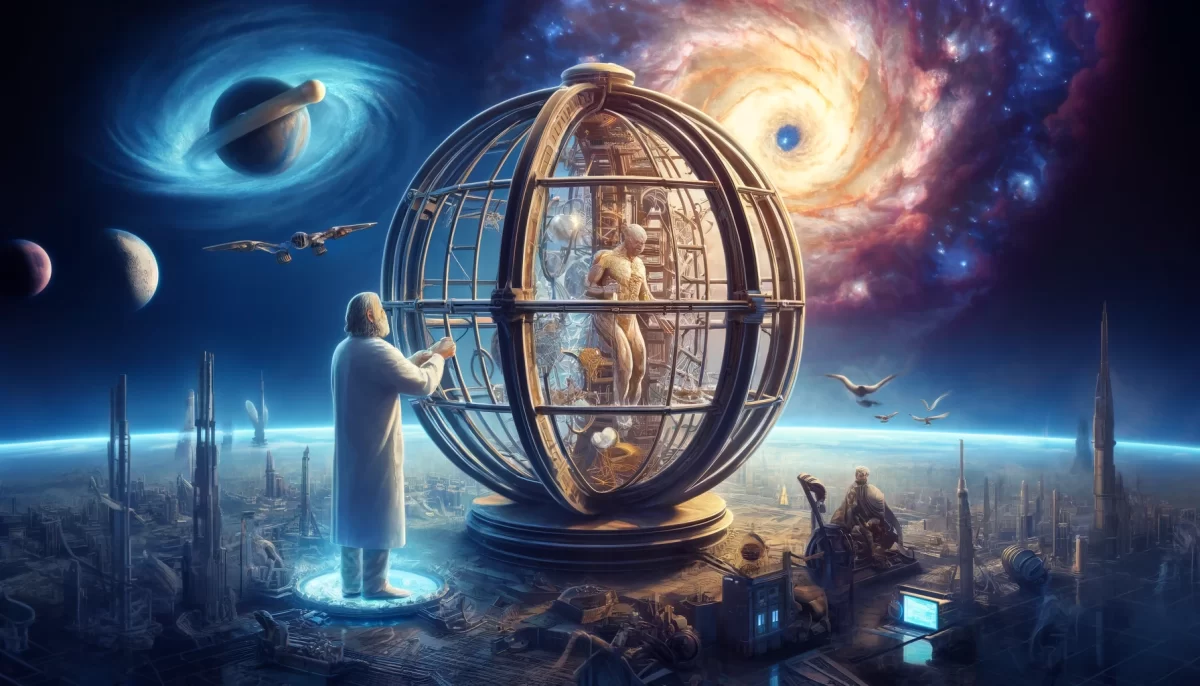
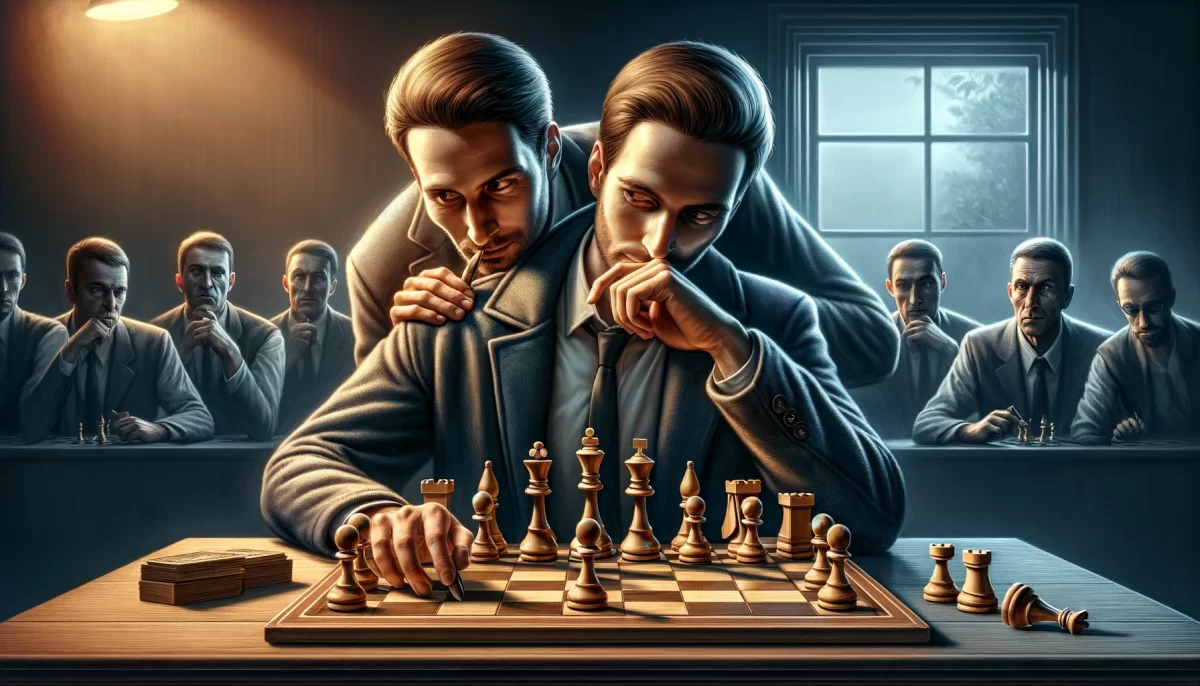
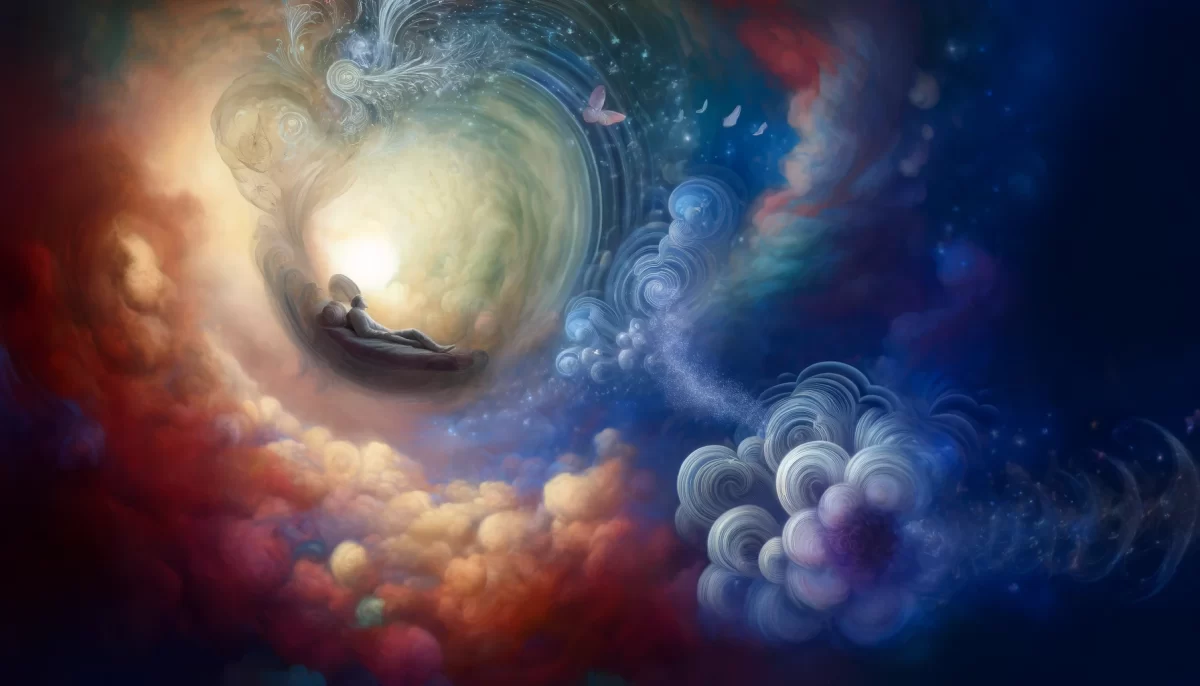
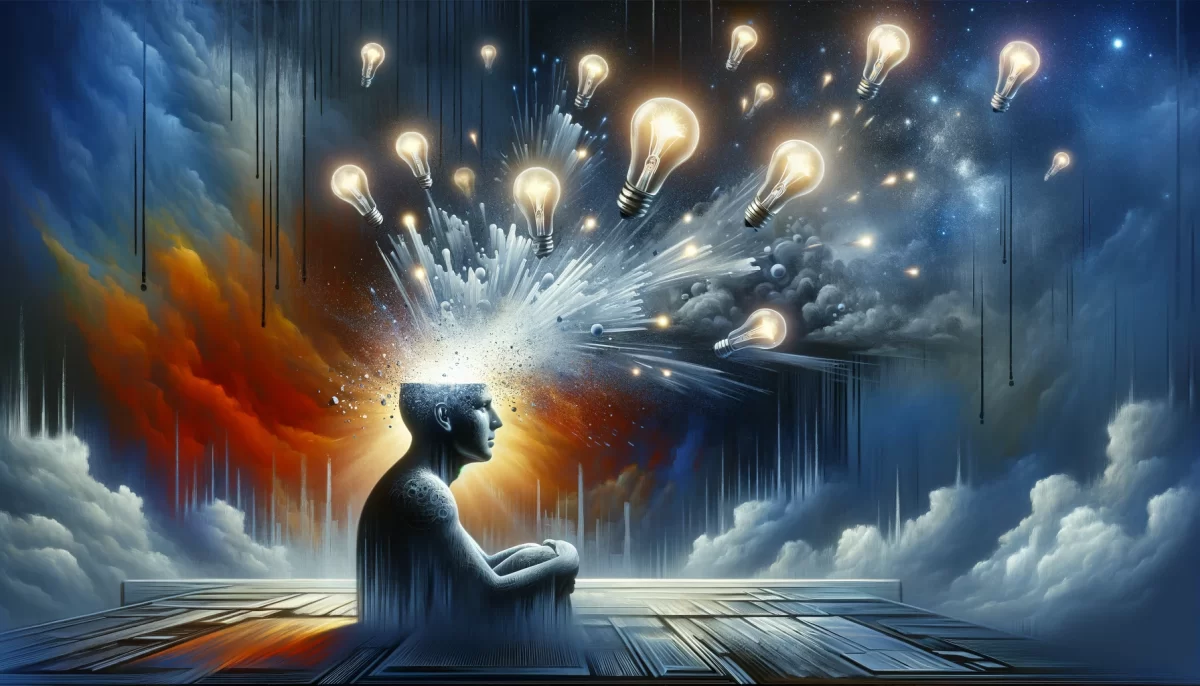
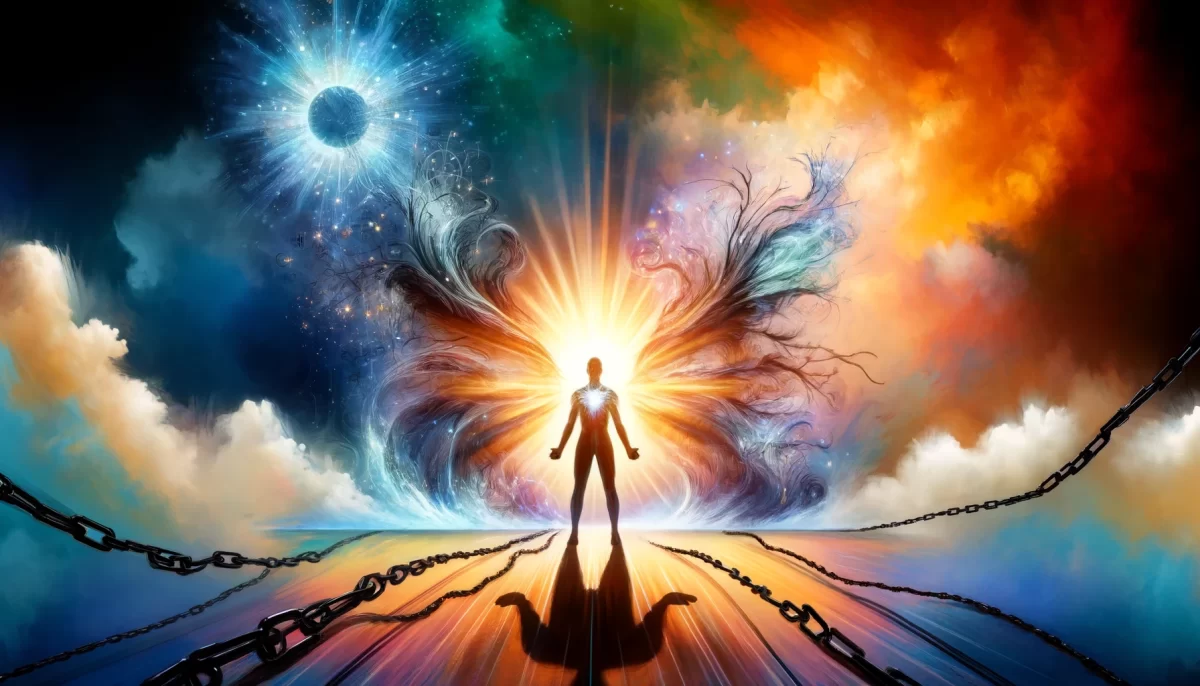
Leave a Reply